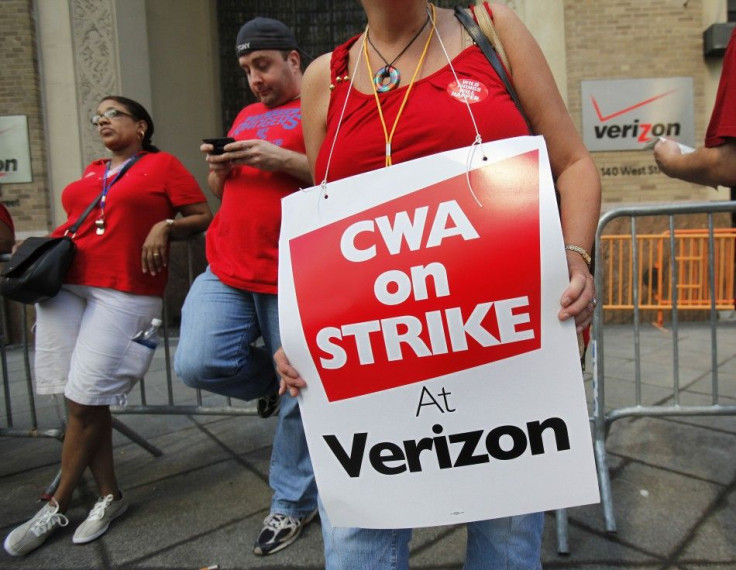Verizon Strike Update: Struggling Landline Business Pressuring Unions

A black cloud hanging over the 11-day strike against Verizon Communications Inc. is the relentless decline in the company’s wireline business, as increasing numbers of customers throw away their landline telephones in favor of mobiles, cable and Skype.
According to Verizon spokesman Lee Gierczynski, the company’s base of landline telephone customers declined from 45 million to about 25 million in just the past five years. Profit margins have also sharply fallen.
Virtually all of the 45,000 employees on strike work for the landline segment -- prompting company officials to re-evaluate its cost structure -- particularly with respect to health care (which has been practically free for these laborers for the past decade, since, under the prior contract, they weren’t required to pay anything toward their monthly healthcare premiums).
Company executives are also seeking a pension freeze and fewer employee sick days.
On the flip side, the wireless business is flourishing – generating $9 billion in operating income in the first half of 2010 (by comparison, the landline segment raised operating income of just $606 million over that period.)
The wireless division (which Verizon owns as a majority shareholder through a joint venture) is almost entirely non-unionized.
Consequently, company management is seeking significant concessions from wireline workers – as much as $1 billion, according to union estimates.
“The existing contract provisions, negotiated initially when Verizon was under far less competitive pressure, are not in line with the economic realities of business today,” said Verizon’s Chief Executive, Lowell McAdam, in a letter to employees.
McAdam added: "We're asking our union-represented employees to help us on a variety of issues that could streamline our processes and further reduce our wireline cost structure while keeping their overall compensation and benefits among the best in corporate America."
According to reports, Verizon is likely using the fragile economy as an excuse to reduce costs in its embattled wireline unit.
However, wireline workers assert that they were originally responsible for the success of the wireless business, since it was they who laid down the infrastructure and ran the technology that the wireless network needs to operate properly.
“It’s true that wireline is losing lines, but many of them are going to Verizon Wireless,” said Robert Master, a spokesman for the wireline workers.
“And regardless of how many lines they’ve lost, they’re obviously operating as an enormously profitable company," he added. "Considering these profit numbers and the huge amount that Verizon’s top executives are being paid, it’s not fair that our members are the ones to have to make sacrifices.”
© Copyright IBTimes 2024. All rights reserved.



















